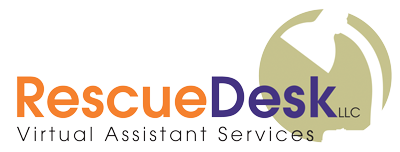BULLYING IS NOT JUST IN THE SCHOOL YARD
We’ve all been there.
You walk into a meeting with your colleagues and department manager. You’ve got an updated file in hand, a few notes to share about your progress, and a list of questions to get some feedback from your team. And then….WHAAAM!
Next thing you know, you’re in the middle of a loud and embarrassing public scolding from the department manager, and you had no idea it was coming.
Or you pick up a new client and things are great the first few meetings. You’re a little nervous because you know her expectations are high; but, then again, so are yours. You go above and beyond to provide services she needs, and you work hard to get her acclimated to your processes, policies, and procedures. She seems happy with how things are progressing. Then your email dings with a new message.
It’s a scathing – and completely unexpected — reprimand that questions your competence, her decision to retain your services, and walks a fine line between criticism and a personal attack.
Bullying is about an incessant need to feel superior and controlling, and zeroing in on someone’s perceived weakness in order to poke at it and parade it around a way that catches someone unprepared, off guard, and off balance. It leaves the bully feeling better that they exerted a little power over someone else, and the victim’s confidence shaken to the core.
The worst part about being bullied is that it’s often tough to see it coming, especially as an adult and in professional settings.
“Is that person really that rude and condescending, or am I just misinterpreting what I heard? I must have misheard. Nobody is really that belittling/unprofessional/disrespectful/mean to another adult…”
The first time it happens, you slink back to your desk with a bruised ego, wondering what the hell just happened. Maybe you assume you did something wrong in that person’s eyes, so you devise a plan to improve or change tactics. Or maybe you chalk it up to your client or boss just having a bad day and it has nothing to do with you. Or you rationalize it by recognizing that they can’t help their uber-direct, impatient, aggressive personality, just like you can’t help it that you tend to take harsh criticism personally.
But then you’re verbally bitch-slapped again, and something happens that every bulldozer personality needs to hear.
That’s right, all you “I have no problem verbally beating someone into submission!” types.
I’m talkin’ to you.
Any trust that person had in you is gone. Period.
They. Don’t. Trust. You.
And if they don’t trust you, how can they possibly do their best work for you?
C’mon. Do these temper-tantrum-throwing professionals really lack that much self-awareness to know that their demanding, pushy, entitled, bitchy, demeaning, bully behavior is not only uncalled for, but it causes people have zero interest in dealing with them? Are these people really that surprised when productivity is never where it should be, or that retention (of both internal team and external vendors) is always a struggle?
And why is it that I — someone who is not short-tempered, who is always conscious that any criticism I give is constructive and productive, and who believes I have to earn someone’s respect — have to adjust MY communication style and MY personality to deal with these people?
Why is it so hard for these blowhards to learn that people generally respond to enthusiasm, humor and encouragement? Why don’t they understand that domination, fear, and verbal sneak-attacks will never bring out the best in anyone? Sure, it might provide a short-term boost in productivity because everyone is running scared, but it simply isn’t sustainable.
I’ve heard excuses for this type of inexcusable, unprofessional behavior before.
- You hear about it in sales training (“Here’s how to use ‘kid gloves’ with potentially explosive personalities…”).
- I’ve seen executive teams make excuses for sucky managers (“Well, she’s a brilliant marketer and a whiz at exceeding her budget every year, so we’ll overlook the fact that her entire team is in therapy for PTSD.”)
- I’ve seen small-business owners make excuses for clients (“He is our biggest client, and when he IS happy with our work, the praise is like rainbows shooting out of a unicorn ass. So, the condescension and daily threats to fire us is a price we’ll just have to pay.”)
I totally, absolutely, 100% understand that sometimes — especially in leadership positions –- assertiveness, high expectations, and decisiveness are not only called for, but are required. And there’s absolutely nothing wrong with expecting the very best, we shouldn’t shy away when criticism is necessary, and sometimes a little “tough love” is exactly what’s needed to motivate your team.
Here’s the thing, though … you have to earn the right to dish out some tough love in order have it make a positive impact.
I worry sometimes because I wonder if this type of bulldozer personality is what’s required in order to make it to the top in this world. I certainly hope not.
But, then again, if that’s what it takes, I’ll gladly give up my seat at the top if it means I can preserve the loyalty I’ve earned in the relationships I’ve developed, the creativity and fearlessness I encourage and appreciate from the people around me, and the trust and respect that’s earned with everyone I choose to work with.
